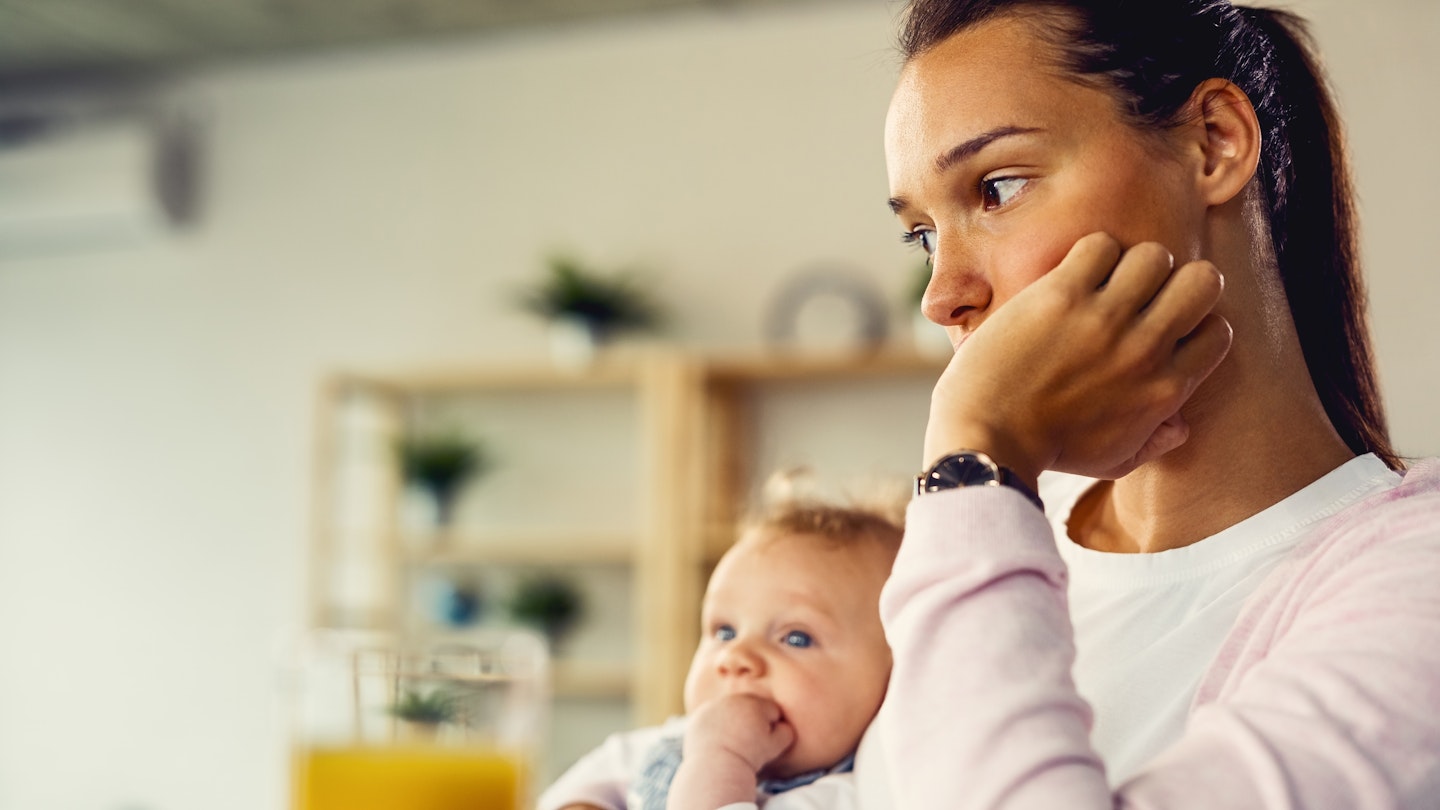Flicking my phone open one morning whilst clumsily pouring cereal into my daughter’s bowl, I caught sight of a news article. It claimed that postnatal depression has almost tripled since the start of the pandemic.
My mind whipped back to my post-partum experiences, recalling my grapple for an anchor amidst the welcome whirlwind of change. Early motherhood sat me upon a rollercoaster of hormones and tiredness, of awe, wonder and overwhelm. What softened each of those rides was the presence of those around me; the airing of concerns with a health visitor over weighing scales, the chat with a mum in the coffee queue, tips from the lady running playgroup, the visit from an aunt or a hug from a knowing friend.
As a Psychotherapist of mums, speaking to thousands of mums each week, I encourage them to get outside, socialise, seek professional support. To gather their "village", engage in classes and build supportive friendships. These foundational building blocks supporting maternal mental health are currently stretched, illegal, or demoted to sparse zoom calls.
READ MORE: Coronavirus: This Is What It’s Like To Give Birth In Lockdown
Add to that the shiny social media feeds offering endless fodder for comparison, and the upheld super-mum ideal, it’s no wonder new mums are feeling overwhelmed. The babies are getting mothered, but the mothers need mothering too.
I wanted to do something to help bring additional support into the living rooms of new mothers. I cannot send family, sleep or a big hug, but I can send kind, supportive and useful words.
My free (or donation) four-week webinar course starts on Thursday October 8th. I’ll be discussing tips, tools and techniques to address the common challenges faced in early motherhood. We’ll explore a wide range of topics. Spanning from mum-guilt and loneliness, through to intrusive thoughts and feeling touched-out.
I’ll be sharing not only as a therapist, but as a mother who’s experienced both post-natal anxiety and depression. The techniques haven’t only changed the lives of my clients, they’ve changed my own.
1. Start with compassion
Is your inner chatter more critical than kind? How you speak to yourself during times of challenge matters. Summon extra patience and adjust your expectations to reflect the fact that you won’t be functioning or feeling as you normally do! The last thing you need is an inner critic fuelling the mum-guilt flame. It’s hard because it’s hard.
2. Don’t shame your feelings
Joy and gratitude can sit beside overwhelm and feeling robbed of how you expected your maternity to be. You can feel gratitude AND grief. Just because you feel overwhelmed, it doesn’t mean you aren’t grateful. All feelings are valid, because they are yours.
3. Keep talking
Friendships and relationships can still be formed and nurtured with extra intention and tech! Ensure that you are speaking to at least one person a day, even in the digital space. It’s not the same, but it’s something. Keep in touch with those you can be open with. Talk whilst out walking or type your feelings into a welcoming online forum. Having your feelings heard and validated is important.
4. Overthinking
Our brains - especially when facing uncertainty, tiredness and overwhelm - like playing the ‘what if’ game in order to feel in control. Instead of bringing a sense of control, overthinking fuels anxiety. Halt the stream of rumination by counting back from 100 in 3’s. Calm your heart and body by inhaling for 4 and exhaling for 6.
5. Consider your needs
Do not let your needs slip down the list of priorities. Ask yourself often what you need, and find a small way to meet it. If you can’t meet it in the moment, simply validate and acknowledge it. Meeting your own needs is a form of self-respect. A shower, a snack and a glass of water aren’t self-care, those are acts of self-respect. A long bath, a 3-course meal and a delicious drink, now, that’s the cup-filling extra mile. Prioritise meeting your basic needs, and then see if you can fit any self-care in on top.
Anna Mathur (@annamathur) is a Psychotherapist and Author of Times Bestseller'Mind Over Mother' .
Anna is running a free (or donation) mental health course for lockdown Mums of under 1’s covering the added complexities that come with navigating early motherhood through a pandemic with four 1 hour webinars over 4 weeks in October (Thursday 8, 15, 22, 29. 12.30pm – 1.30pm) including tips, tools and techniques to address the common mental health challenges that mums face in the early weeks and months. All details can be found here.
